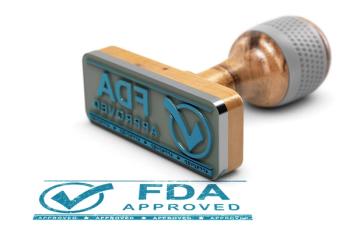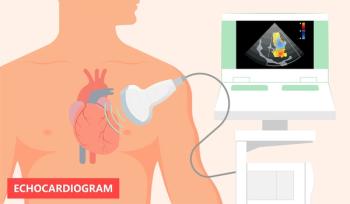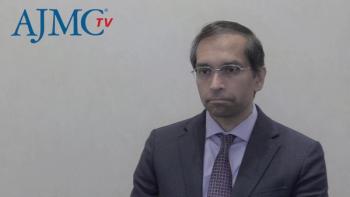
How Much Do Physicians Know About SDOH in Their Patients With PAH?
Clinicians interviewed in a recent study reported various social determinants of health (SDOH) affecting health outcomes for patients with pulmonary arterial hypertension (PAH), indicating the need to address SDOH in PAH care.
Adding a social worker to clinical staff in specialized pulmonary hypertension centers and integrating screening for social determinants of health (SDOH) to support patient care and improve outcomes was viewed positively by pulmonologists and cardiologists, according to results of a recent survey.
Writing in
Participants in the study reported that various SDoH impacted patient health and expressed support for the implementation of SDoH screening and social workers to optimize care for patients with PAH.
Researchers conducted 30-minute virtual interviews with 17 clinicians (13 pulmonologists and 4 cardiologists) treating an overall average of 321 patients with PAH across 17 pulmonary hypertension (PH) centers across the United States. These patients had a high severity of illness and an average age of 52 years; 73% were women, 61% were White, 34% were unemployed, 23% were retired, and 51% had public health insurance such as Medicaid and Medicare. Researchers also interviewed a patient advocate from the Pulmonary Hypertension Association (PHA).
Interviews consisted of open-ended questions based on Healthy People 2030 SDOH framework. This included asking the clinicians about how factors such as health care access, education, employment, neighborhood, social, and community may impact the health of patients with PAH. Researchers then analyzed transcripts of the interviews for key terms and themes of SDOH.
These physicians demonstrated high awareness of the meaning and nuances of the term SDOH, noting the various nonclinical factors impacting the health of their patients with PAH, including health insurance coverage, socioeconomic status, transportation, employment, education, substandard housing, food insecurity, mental health, health literacy, and social support.
For instance, physicians noted the following:
- Employment is related to a patient’s economic status and determines affordability of care, food access, housing status, and transportation, as well as health insurance status. However, as many as 40% of their patients were too disabled to work, including younger adults. Disability benefits are extremely difficult to obtain, even when doctors certify that the PAH is a disability.
- Access to basic housing with uninterrupted utilities (electricity, gas, and water) and adequate ventilation, heating, and cooling is necessary for patients’ physical health. Having unstable housing may impact the ability to receive specialty PAH medications shipped to the home.
- Some patients with PAH are forced to choose between paying for food or medications. One clinician noted that poor nutrition due to poverty or living in a food desert is associated with a higher risk of hospitalization and lower treatment efficacy. In addition, location and/or poverty may cause a lack of reliable transportation, limiting access to treatment.
- PAH therapies involve complex regimens which may be delivered thought a variety of methods; having lower levels of education or poor health literacy might affect outcomes.
- Language barriers and a cultural disconnect between providers and patients may also worsen PAH outcomes in patients. One participant claimed underreporting of PAH in diverse groups such as Black, Hispanic, and Asian patients, meaning providers know less about how PAH affects these groups.
- Because of the rapid progression and fatal nature of PAH, many clinicians said their patients had depression and anxiety as well as substance use disorder. Patients with substance use disorder are more vulnerable to multiple SDOH, creating greater challenges for PAH treatment.
- Limited in-person care, social distancing guidelines, and delayed shipments of medications during the COVID-19 pandemic impacted PAH care and outcomes. While telemedicine provided access to remote care, patients with limited access to technology or internet were at a disadvantage.
SDoH was not screened at the centers, and clinicians said mostly relied on patient interactions to get a sense of the social factors that may influence their care. While they were in favor of having a social worker on staff, physicians also noted institutional barriers, such as cost, and integrating findings into the electronic health record.
There were some limitations of this study, including the possibility that only clinicians knowledgeable about SDOH agreed to participate in the study, creating self selection bias, and their answers were subjective. Clinicians may have also prepared for the interview, showing higher awareness of SDOH than they would have had if not participating in the study.
However, the researchers said this to be the first study to assess clinician awareness and knowledge of SDOH affecting patients with PAH. Study findings may aid in informing practice models and health policy that focuses on screening and follow-up for SDOH and providing community referrals to help address these SDOH, the researchers concluded.
Reference
Nadipelli VR, Elwing JM, Oglesby WH, El-Kersh K. Social determinants of health in pulmonary arterial hypertension patients in the United States: clinician perspective and health policy implications. Pulmonary Circulation. 2022;12(3). doi:10.1002/pul2.12111
Newsletter
Stay ahead of policy, cost, and value—subscribe to AJMC for expert insights at the intersection of clinical care and health economics.








